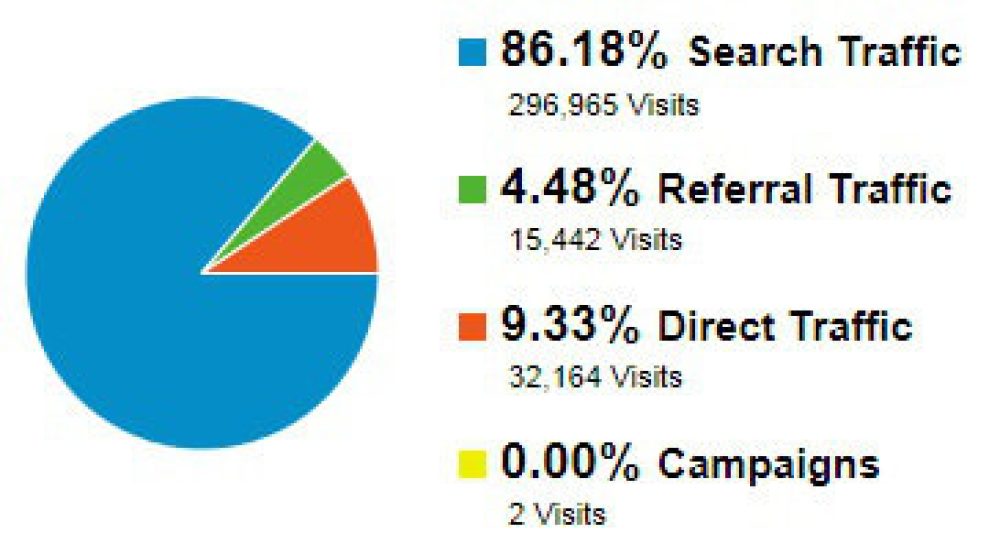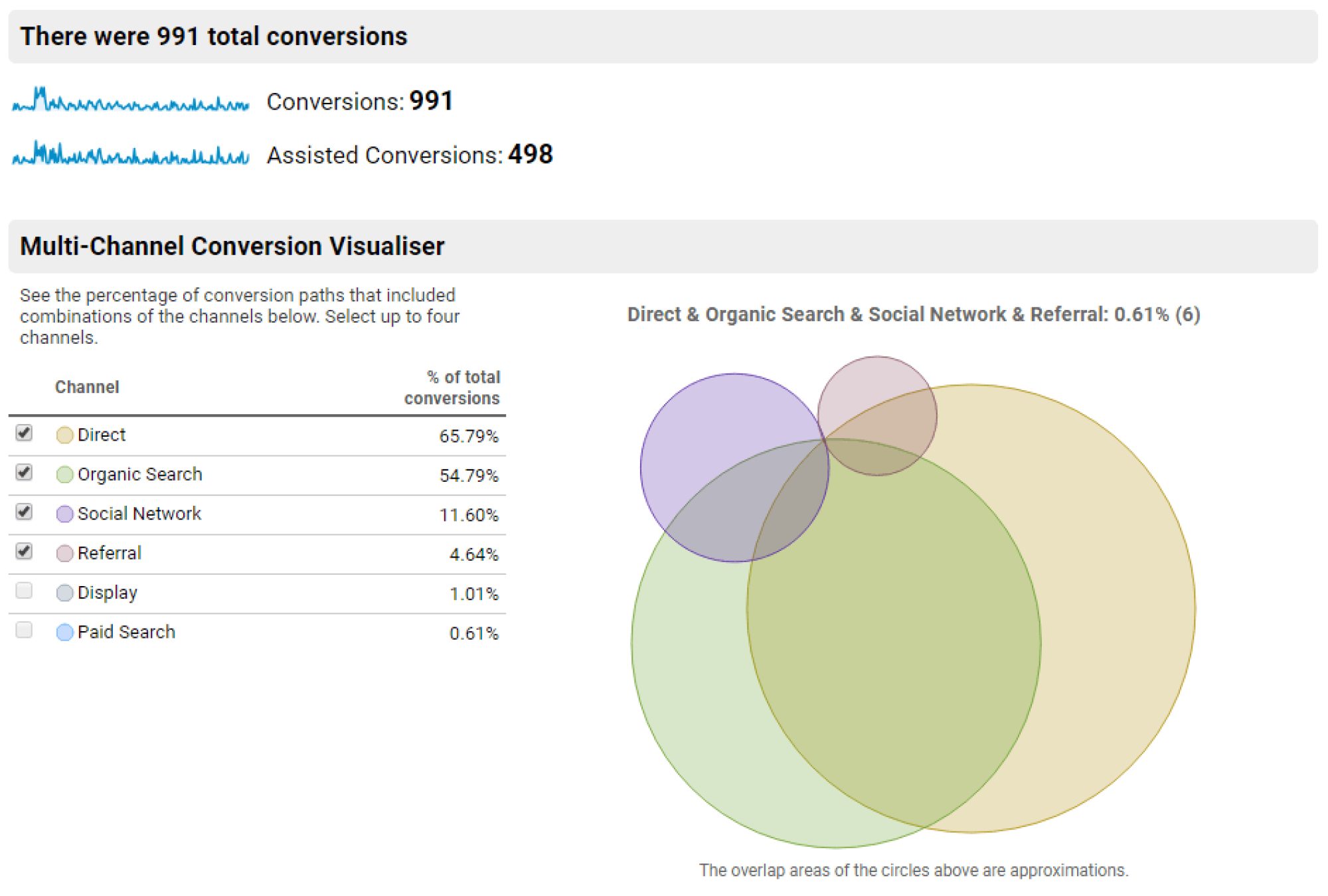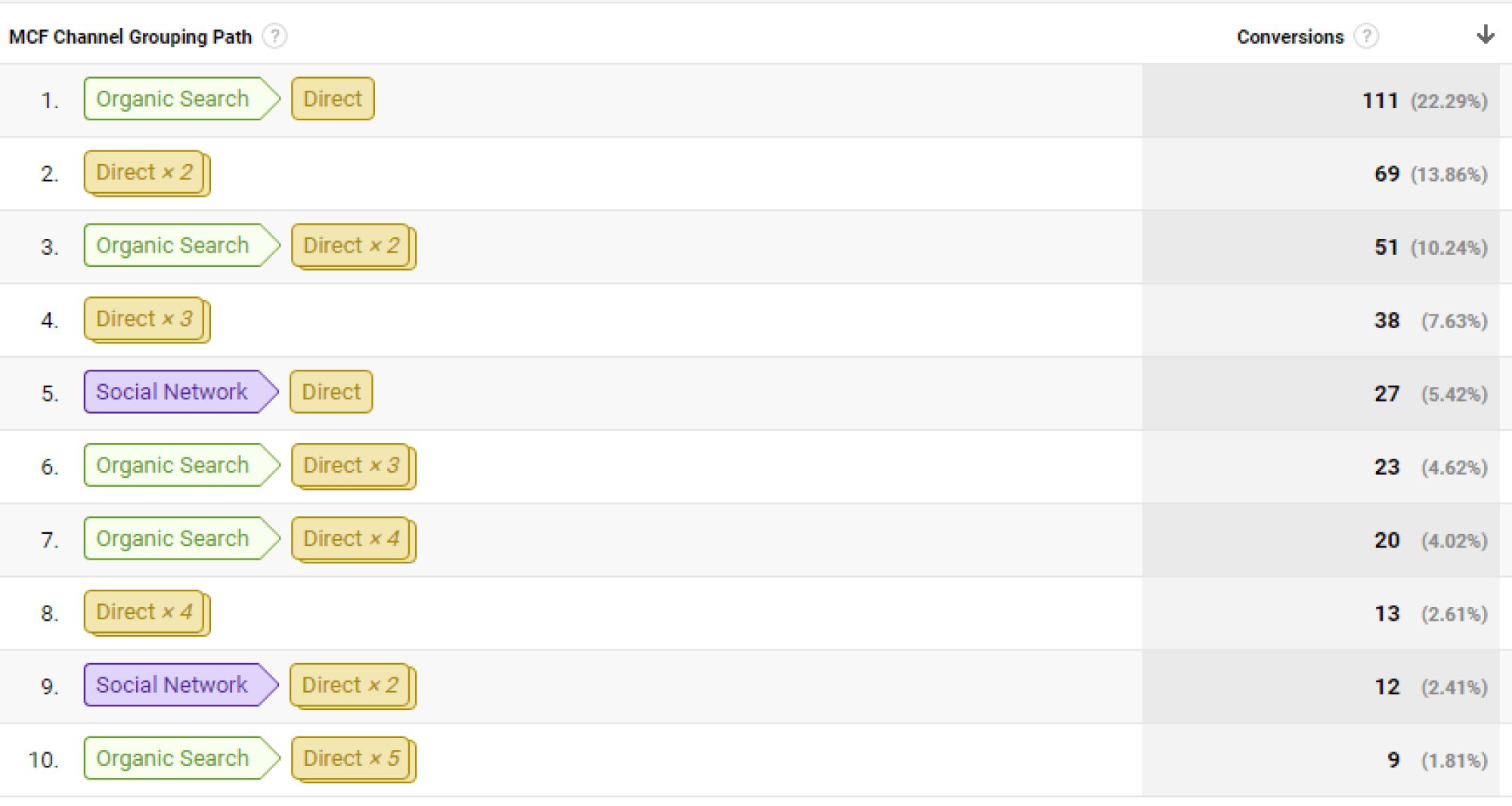When a business owner utters those words (even though it doesn't happen that often these days, but when it does), I find a return to some basic concepts and discussions (and a pinch of Google Analytics magic), helps make an irrefutable case for the importance of search engine optimisation.
An article "On the value of SEO" by SEO Skeptic, provides a consideration of the value of Search Engine Optimisation (SEO) and the data on which it is based. In order for value to be assigned to the practice of SEO, the data needs to show that "the strategic purpose of optimizing for high placement in the organic search results is demonstrably valuable, and demonstrably achievable." This article presents some well-established concepts and hard data on the value of SEO for businesses (worth a quick read).
There are also many other ways to demonstrate the value of SEO to your business, including jumping into your own Google Analytics account and exploring a couple of areas.
A quick high-level look at Google Analytics under Traffic Sources > Overview will likely show that a sizable percentage of traffic is coming from organic search. If your data does not show this, it most likely means that your website has poor SEO and is not reaching your markets (and we really do NEED to talk).

Direct traffic consists of consumers that come directly to your site (via typing your domain name into the top of the browser) and they are likely to already know about your business and its products/services. On the other hand, very often organic searches are performed by consumers that either don't know about your products/services, or are in an investigative stage in their buying journey. And you certainly want to be found at all stages or touch-points in the consumer's decision-making process; especially for any research and educational stages (it helps establish the "trusted advisor" status).
I have also heard "We don't need SEO; we have a strong brand and we get our conversions from direct traffic rather than organic traffic". And if this is you, then this is fantastic. You have undoubtedly worked hard to establish a strong brand. However, you are likely to be only looking at the bottom end of your sales funnel, and are either undervaluing SEO, or missing out on the online markets.
Fortunately, due to the advancements in multi-channel attribution
within Google Analytics, it is possible to have a look at Assisted
Conversions and Multi-Channel Funnel pathways for your site. These are
both ways of looking at the assistance that the different channels
provide to each other in the gaining of a conversion. In particular,
analysis of this data enables you to see the impact of organic search
assistance on the various referring channels.

Google Analytics, under Conversions > Multi-Channel Funnels > Overview, shows how your channels work together to generate sales and conversions. This also includes a "visualiser" to highlight the crossover between the channels.
In this example, some quick number crunching shows that ~50% of the website conversions involved multiple channel (assisted) conversions.

Delving a little deeper into Conversions > Multi-Channel Funnels > Top Conversion Paths shows the assisted pathways to conversions. In this case (and many others), first-pass analysis indicated that the direct traffic channel was the hero due to last-touch goal tracking. However, we can now see that a large percentage (~40%) of the direct channel conversions were originally initiated via organic search.
In today's online market it is important to optimise the effectiveness of all your channels, including organic search, as frequently they will be working together to increase conversions and aid consumers in their buying journeys.


